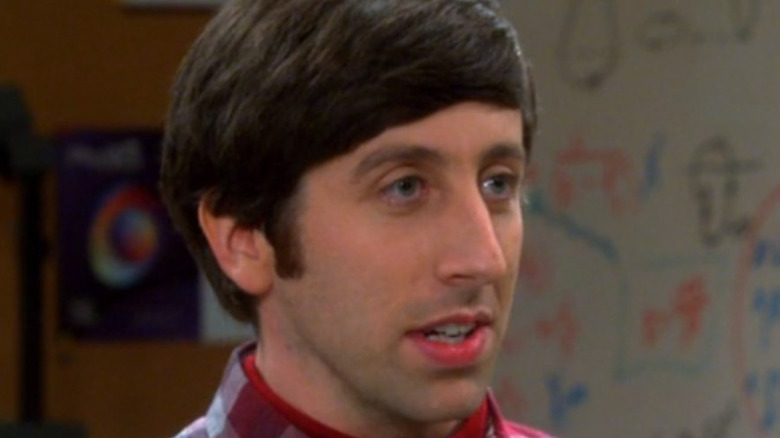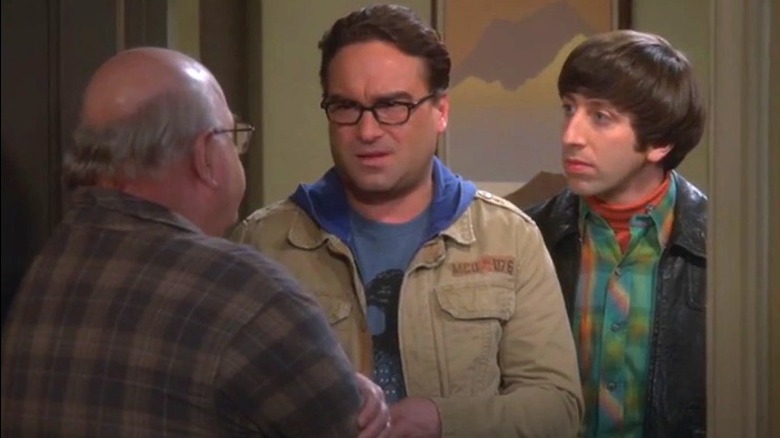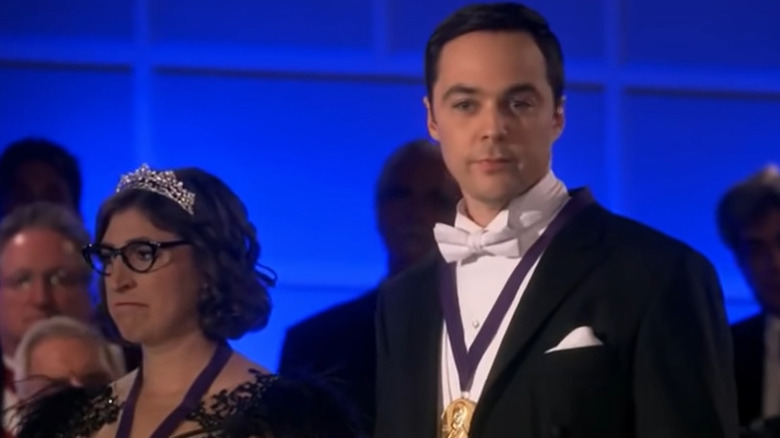The Big Bang Theory Line That Fans Still Find So Poignant
Since "The Big Bang Theory" is a sitcom, early episodes of the show mainly focused on garnering laughs out of Leonard (Johnny Galecki) and Sheldon's (Jim Parsons) nerdy habits and how they clashed with their attractive blond neighbor, waitress slash actress Penny (Kaley Cuoco). However, over time, the characters' bonds with each other strengthened, and the audience became increasingly attached to the main friend group.
Soon, the creators of "The Big Bang Theory" found that they'd gained enough trust from viewers that they could draw on more emotional reactions without alienating them. Showrunner Steve Molaro has been credited in part for this shift since he believed that with later seasons, "these characters are growing and getting deeper. We can do stories with a little more heart than they used to in the early days" (via TV Guide). And one emotional episode later in the series hit fans of the show especially hard.
Howard's observation about greatness made an impact
The Season 8 episode "The Champagne Reflection" features Leonard, Howard (Simon Helberg), and Raj (Kunal Nayyar) cleaning out the office of an older professor, Roger Abbott, who passed away unexpectedly. The trio finds an unopened bottle of champagne sent by his mother decades ago, to be popped when Abbott makes a major discovery, along with a notebook full of numbers that looks promising, but it turns out to be a diet diary.
Leonard is struck by how Abbott never did anything truly significant as a scientist despite his years in the field, and Howard observes, "I guess the sad truth is, not everyone will accomplish something great. Some of us may just have to find meaning in the little moments that make up life."
Howard's comment sure struck a chord with Redditor u/bubbahubbado, who opined, "You can be a truly great and influential person by just being a good and decent person [who] strives to help someone, even affecting 1 person, makes you great."
Sheldon's series finale speech demonstrates what Howard means
Sheldon isn't there to clean out Professor Abbott's office, but in the series finale, "The Stockholm Syndrome," he finally recognizes that his life already has meaning without him needing to achieve scientific greatness. Both Sheldon and his girlfriend, Amy (Mayim Bialik), are awarded Nobel Prizes, and Sheldon, after repeatedly being rude to his friends on the trip so far, for once makes a sensitive, selfless choice. He puts aside the speech he wrote long ago calling out everyone who had ever done him wrong and decides instead to praise his family, wife, and friends, even saying he loves them.
Sheldon not only becomes the great scientist Abbott wanted to be but also perceives that his loved ones and the little moments he shared with them are what actually make him happy. Meanwhile, Leonard isn't an especially important scientific figure but is equally happy about starting a family with Penny. If "The Big Bang Theory" began as a sitcom about the culture clash of nerds with "normal" people, the ending demonstrates what the show eventually became: a story about a weird group of friends learning to value their relationships with each other.


